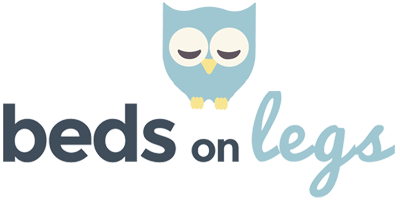The service from Beds on Legs was excellent. I contacted them via the Chat before purchasing with questions and a "real" person came back to me and offered different solutions. As soon as I placed the order they called to make arrangements for delivery.
Although we had reservations about buying a "flat pack" bed we were very surprised by how good it is. Came in multiple boxes which actually made it easy for the delivery men to get it upstairs to the right bedroom. Boxes were clearly labeled on outside with contents. The only small criticism is that the feet for the headboard were hidden in a compartment in the back of the headboard. I am betting lots of people call to report them "missing" as we almost did. Instructions were good (although there was a 50/50 we managed to get wrong and realised when we got to the next stage). Overall the bed base is well constructed. Solid and good quality as well as looking great.
Exactly right for visiting grandchildren although I don't think the mattresses would suit adults (should perhaps have bought higher quality mattresses).
Good quality beds. Substantial mattresses. Quick free delivery







